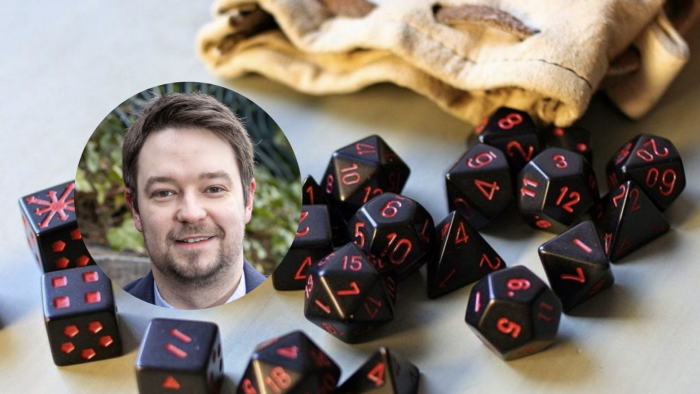Imagine you’re exploring an uninhabited jungle in the far reaches of the world with your team of friends. The air is humid and tropical, the ground beneath your feet is soft and unexpectedly collapses as you fall into an ancient temple. Do you try and climb out? Or let adventure carry you further in? Bare with me…
Dungeons and Dragons — D&D — is a fantasy role playing game where you assume the persona of a fictional character to drive forward a story. The game is led by a dungeon master who describes the environment and narrates the actions as they unfold, and rules are flexible so you can problem-solve your way out of almost any situation.
It’s a bit like reading Lord of the Rings but you decide what the characters do in real-time. Actions are determined by the roll of a 20-sided dice added to your character’s skill number and this results in either success or failure. Regardless of the outcome, the game moves forward, and the situation progresses.
Teamwork is essential
Usually in a board game you are trying to win against other players but with D&D it’s a little bit different: you are brought together narratively to overcome challenges. No one character is strong enough to conquer the monsters, or wise enough to overthrow an evil king. So it’s important to recognise the diversity of skills and ideas that others can bring to the table.
It’s just like in the workplace, or when you are planning a trip, making a product, or finishing a brief. Success is shared by all. Humans, dwarves, elves, archers, designers, or developers — individual culture is celebrated, but what really matters is that you’ve got each other’s back. It’s okay to rely on each other.
Recognise your strengths and weaknesses
When you create a character in the game your skills are determined from dice rolls and a few modifiers. Some lucky rolls will be high and others low — making you proficiently skilled in select areas. Your character might be highly dextrous but with low stamina or social grace. We can’t be good at everything, and our characters are the same.
That’s okay though, because you will find your own way to solve problems in a way that leans into your strengths. Is there a hulking troll in your path? There’s no need to fight it if you can roll past or cast a magic sleep spell instead. Character weaknesses leaves room for development and storytelling.
When you play you need to think of flaws and ideals that may not be virtuous. The experiences that we go through enhance our strengths but can also expose new weaknesses that we will find and become aware of. When we recognise this, we can lean on our strengths more often.
Feel empathy for others
Role playing by definition is putting yourself in someone else’s shoes. Your character might be like you — or not like you at all. Let’s say you were hunting a werewolf that has been ravaging a local town; but how do you feel when you realise the monster is actually a very human victim of a terrible curse.
Your charecters have their own desires and ideals, but the rest of the world does too. The game lets you see the perspective of others and you can’t help but realise predicaments that are imposed by others. An important skill which can help us feel more connected to those around us.
Creativity is only limited by your imagination
Creative thinking is part of everyday life, and it drives the problem-solving engine that we take for granted. D&D relies heavily on imagination as without it there is only sheets of paper and dice. Your imagination of the characters and their environment help to shape your ideas of how you can overcome challenges.
What has this got to do with generating ideas for your business? Ultimately D&D requires you to think outside of the box. It’s a fun way to get the creative juices flowing when you feel like you’re in a rut, and to encourage yourself to think imaginatively. Once you get into the habit of doing this the ball will start rolling and they’ll be no stopping you.
